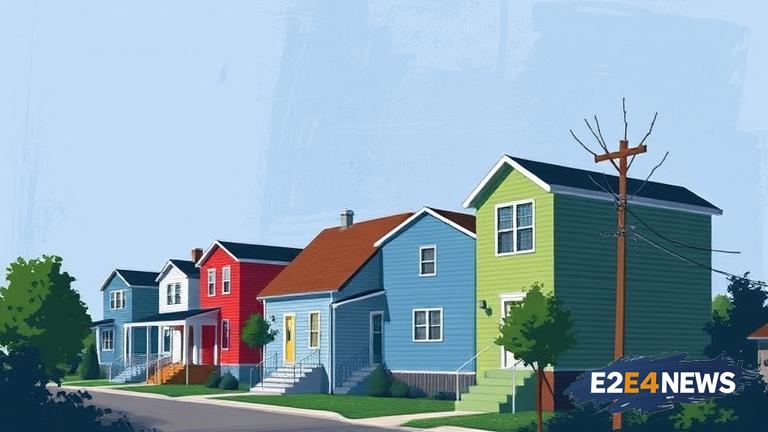The introduction of bipartisan legislation marks a significant step towards addressing the pressing issue of housing shortages across the United States. This new legislation aims to increase the availability of affordable housing options, making it possible for everyone to have a place to call home. The bill seeks to promote the development of affordable housing units, encouraging private investment and public-private partnerships to achieve this goal. By providing incentives for developers to build affordable housing, the legislation hopes to bridge the gap between the demand for housing and the available supply. One of the key provisions of the bill is the creation of a new tax credit program, designed to encourage the development of affordable housing units in areas with high housing costs. This program will provide a significant incentive for developers to build affordable housing, helping to increase the supply of affordable units. Additionally, the legislation includes provisions to help low-income families and individuals access affordable housing. This includes increasing funding for programs that provide rental assistance and supportive services to help people maintain stable housing. The bill also aims to address the issue of housing affordability in rural areas, where the shortage of affordable housing is particularly acute. By providing funding for rural housing initiatives, the legislation hopes to increase the availability of affordable housing options in these areas. Furthermore, the legislation includes measures to promote the development of affordable housing units that are accessible to people with disabilities. This includes providing funding for programs that help people with disabilities access affordable and accessible housing. The introduction of this bipartisan legislation is a significant step towards addressing the nationwide housing shortage. It demonstrates a commitment to finding solutions to this complex issue and ensuring that everyone has access to affordable housing. The legislation has been welcomed by housing advocates and industry leaders, who see it as a crucial step towards addressing the housing shortage. However, some critics have raised concerns about the potential impact of the legislation on the housing market, arguing that it may not do enough to address the root causes of the shortage. Despite these concerns, the legislation is seen as a positive step towards increasing the availability of affordable housing options. As the bill moves through Congress, it is likely to undergo significant changes and amendments. However, the introduction of this legislation marks an important milestone in the effort to address the housing shortage. It highlights the need for a comprehensive approach to addressing this issue, one that involves both public and private sector investment. The legislation also underscores the importance of addressing the social and economic factors that contribute to housing insecurity. By providing a range of solutions to address the housing shortage, the legislation hopes to make a significant impact on the lives of millions of Americans. The bill’s focus on promoting affordable housing options is particularly significant, as it recognizes the critical role that housing plays in determining health, education, and economic outcomes. As the nation continues to grapple with the challenges of housing insecurity, this legislation offers a beacon of hope for those struggling to find affordable housing. With its emphasis on promoting affordable housing options and addressing the root causes of the shortage, the bill has the potential to make a lasting impact on the housing landscape. Ultimately, the success of this legislation will depend on its ability to bring together stakeholders from across the housing sector, including government agencies, private developers, and community organizations. By working together, it is possible to create a more comprehensive and sustainable approach to addressing the housing shortage, one that prioritizes the needs of low-income families and individuals. The introduction of this bipartisan legislation is a significant step towards achieving this goal, and its passage would mark an important milestone in the effort to ensure that everyone has access to affordable housing.
